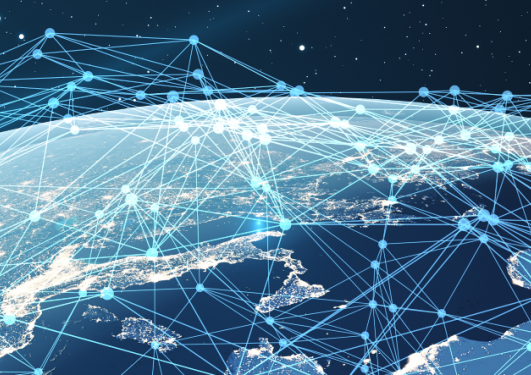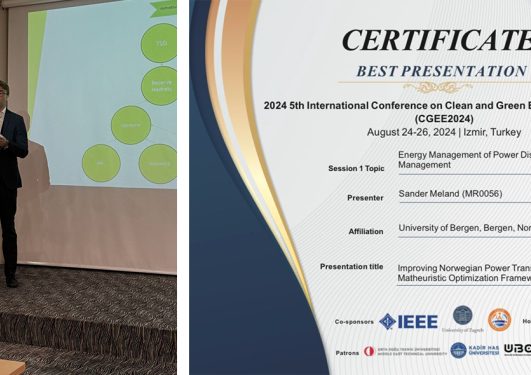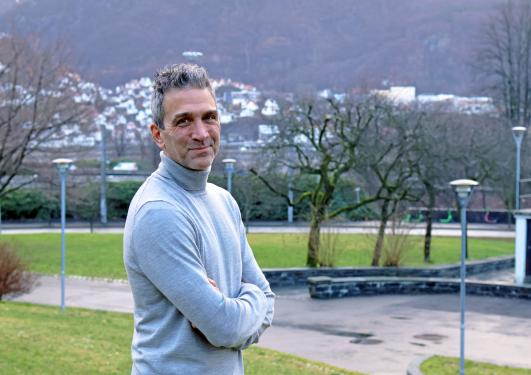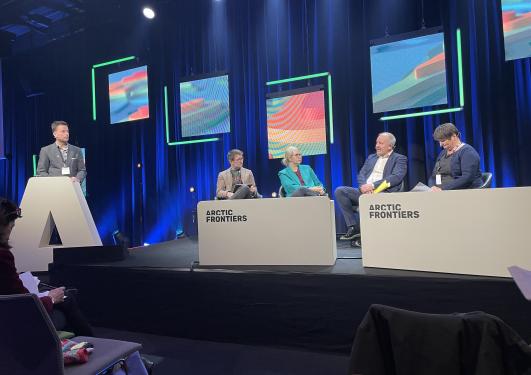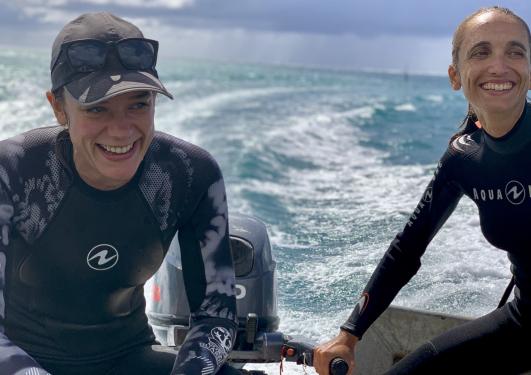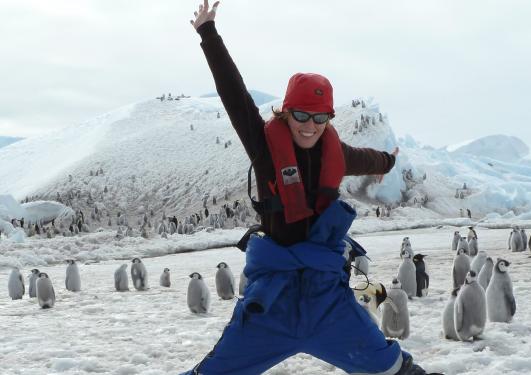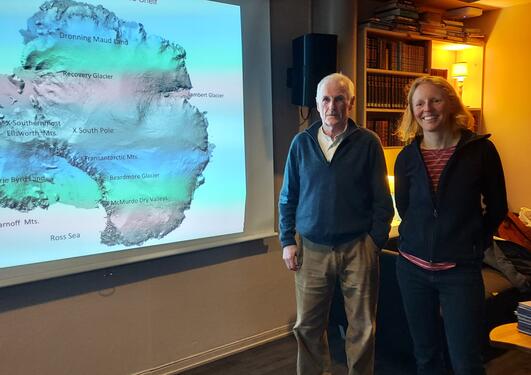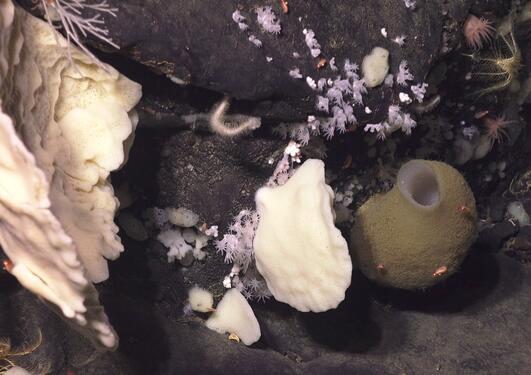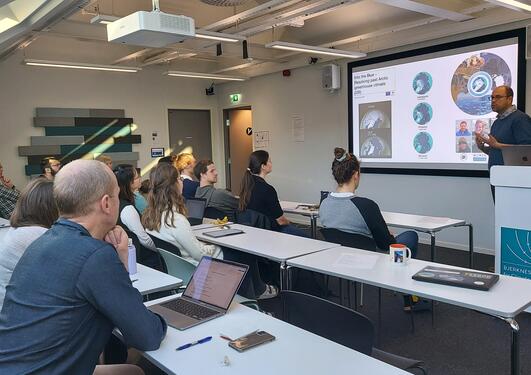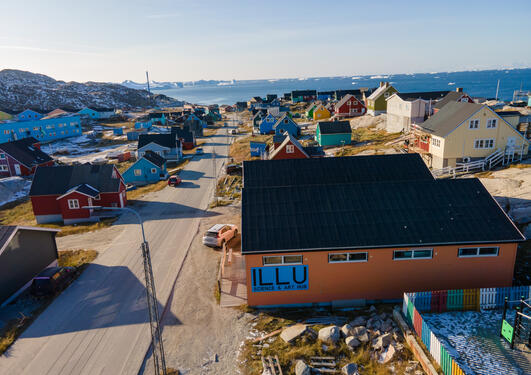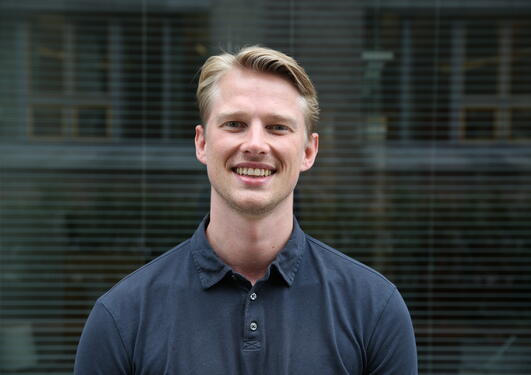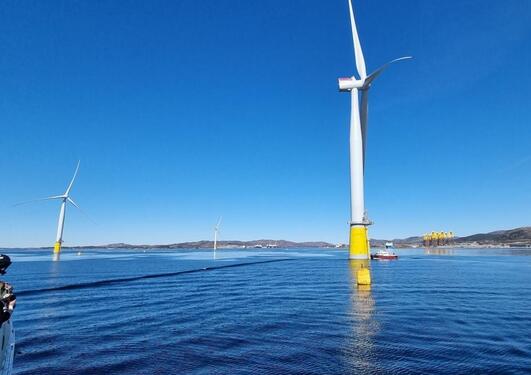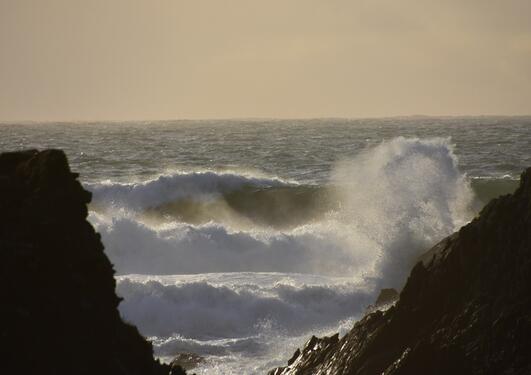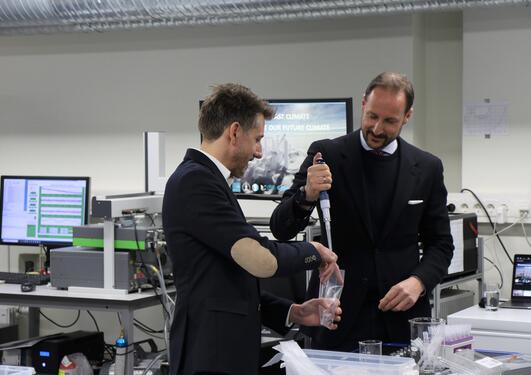News archive for Geophysical Institute
The University of Bergen is represented by four of the 19 finalists in the national competition to establish new AI centres. Discover the candidates here.
Sander ble ferdig med mastergraden sin for er par måneder siden. Denne helgen vant han pris for sin akademiske artikkel.
The main goal of the centre is to transform the provision of weather, climate and environmental information to enable better- informed decisions in the face of unprecedented environmental challenges. All this by using artificial intelligence.
The University of Bergen (UiB) will host another seven international research fellows after a very successful application round in this year’s competition for MSCA funding from the EU. The grants will fund the researchers' stay at UiB for two years.
Rogue or freak waves (monster waves) are exceptionally large waves that can suddenly loom into existence, seemingly from nowhere. Are these waves truly different from ordinary storm waves, or are they just what you should expect to see if you wait long enough?
In the side event “License to Operate – The Arctic Energy Transition” at Arctic Frontiers 2025, stakeholders from across sectors joined forces to discuss the challenges lying ahead for the Arctic and the green transition of energy markets in a geopolitically challenging situation.
Coral reefs produce a lot of oxygen during the day (thanks to photosynthesis), but at night the oxygen levels decrease. Can this threaten fishes at the reef, or do they have strategies to survive? To find out we spent six months of fieldwork and experiments on the island of Moorea in French Polynesia.
Starting October 1, the new name will be the Faculty of Science and Technology. We will certainly celebrate this!
The Antarctic ice shelves – the floating glaciers surrounding most of the continent – are melting from below as oceanic currents bring warm water into the cavity. But how and how fast is the ice melting? In this Ocean Science Bar, you will learn why Antarctic ice shelves matter, about what happens below them, and about what it’s like to do fieldwork ”down south”.
Light is probably the most varying environmental variable in pelagic ecosystems, and the most ignored in ecological studies. In this Ocean Science Bar, you will learn how light structures the distribution of zooplankton and fish.
Polar Network Event, Bergen, April 11, 2024
On Thursday, April 11, we had the first event of the Polar Science Network this year.The event took place at Mao’s Lille Røde (Det Akademisk Kvarter) with two exciting and different perspectives of fieldwork in Antarctica.
The first presentation was given by Elin Darelius about her recent fieldwork on the Fimbul ice shelf. She and a group of... Read more
Deep sea research is a gateway to unlocking mysteries both within our planet and beyond, offering insights that can have profound implications for science, industry, and our understanding of life in the universe.
This Polar Express, we had 7 Project presentations and 6 presentations of recent Polar Science articles from Bergen, which were presented on Friday, November 24, in the Bjerknes Lecture Room (West Wing, Geophysical Institute, 4th floor).
UiB's recent initiatives in Greenland signal a continued commitment and evolution in its Arctic research endeavors. Through active participation in the Ilulissat Science Forum and the launch of the ILLU Science and Art Hub, the University of Bergen (UiB) showcases its ongoing dedication to collaborative engagement with the local population.
Offshore wind farms can “steal” the capacity of other farms by up to 20 percent up to 50 kilometres away, due to wake loss. The regulation is ambiguous and needs to be developed to accommodate large-scale offshore wind development in the North Sea and other ocean areas, according to PhD Candidate Eirik Finseraas at the Faculty of Law, University of Bergen.
Offshore Wind 2040 (OW2040) is on track to become a Centre for Environment-friendly Energy Research (FME) by the end of 2024. If the Research Council of Norway approves the FME application, OW2040 could become a world-leading hub for offshore wind development.
Climate change, pollution and overfishing threaten our oceans. The EU-COMFORT project calls for imminent greenhouse gas reduction to limit irreversible damage.
HRH Crown Prince Haakon of Norway visited the Bjerknes Centre to learn more about our research – and to check the snow he sampled himself in Greenland last summer.
Pages
- 2025
- 2024
- 2023
- 2022
- 2021
- 2020
- 2019
- 2018
- 2017
- 2016
- 2015
- 2014
- 2013
- 2012
- 2011
- 2009
